Table of Contents
If you really want to learn a language well, lots of exposure to the language, especially through listening practice, is essential. Fortunately, the internet offers a plethora of opportunities to help us achieve this goal, through TV shows, dramas, movies, radio, YouTube channels, and so on. This is true for the Tunisian Arabic dialect, as well. Let’s take a look at some of the most popular Tunisian TV shows and movies that might be useful and interesting for a learner to become more accustomed to Tunisian Arabic. I’ll also recommend some interesting YouTube channels that will be helpful for you.
 Tunisian media flourished after the 2011 revolution. Having gained true freedom of expression, today it is completely free from censorship. The government and politicians are openly criticized… and even mocked through “guignols” (latex puppet likenesses). The president of the Republic of Tunisia agreed to meet his guignol on ElHiwar Ettounsi TV in 2013, and this was highly appreciated by Tunisians, who had lived for centuries under dictatorships and censorship.
Tunisian media flourished after the 2011 revolution. Having gained true freedom of expression, today it is completely free from censorship. The government and politicians are openly criticized… and even mocked through “guignols” (latex puppet likenesses). The president of the Republic of Tunisia agreed to meet his guignol on ElHiwar Ettounsi TV in 2013, and this was highly appreciated by Tunisians, who had lived for centuries under dictatorships and censorship.
Tunisian TV
Al Wataniya
Let’s start with the national Tunisian TV Channels Al Wataniya 1 and Al Wataniya 2. You can watch both channels live on YouTube, as well as watch full shows and clips of their programs.
Choufli Hal (Sitcom)
 Now, the majority of teenagers are definitely not into Al Wataniya, but they still broadcast one of the most popular and funniest sitcoms that have ever been broadcast in Tunisia and which dates back to October 2005, having five seasons. It was broadcast during Ramadan and is called شوفلي حل “Choufli Hal,” which means “Find me a solution.” It stars some of the greatest actors and actresses in Tunisia, including Kamel Touati, Mouna Noureddine, Kaouther Belhadj, Amel Baccouche, and, last but not least of all, Sofiène Chaâri, who passed away in 2011 saddening the hearts of thousands of Tunisians.
Now, the majority of teenagers are definitely not into Al Wataniya, but they still broadcast one of the most popular and funniest sitcoms that have ever been broadcast in Tunisia and which dates back to October 2005, having five seasons. It was broadcast during Ramadan and is called شوفلي حل “Choufli Hal,” which means “Find me a solution.” It stars some of the greatest actors and actresses in Tunisia, including Kamel Touati, Mouna Noureddine, Kaouther Belhadj, Amel Baccouche, and, last but not least of all, Sofiène Chaâri, who passed away in 2011 saddening the hearts of thousands of Tunisians.
The sitcom tells the stories of a psychotherapist who is always annoyed by his little brother’s stupidity and jealous of his neighbor, who is a fortune teller pretending to know the future so she can earn a living–and she earns even more than he does, and people tend to prefer her over him. It also features their other neighbors, typical Tunisian families.
Here are some links to some of the funniest episodes that I especially recommend:
The first one is about Aïd Al-udha and its atmosphere.
The second one is about another important event in Tunisian families, which is the baccalaureate exams, when all the family members are stressed as it is a very decisive step in the student’s life.
The third is a scene where the therapist goes to the Hammam with his little brother and comes back home in an awful state.
Private TV Channels
There are three competing (if not combatting!) private channels.
El Hiwar Ettounsi
El Hiwar Ettounsi (الحوار التونسي) offers a variety of interesting TV programs and more “modernized” TV soaps that highlight the bright side of the Tunisian wealthy class, showing off luxury cars, beautiful villas, fashionable outfits, beautiful girls and handsome men, and so on. Two popular shows are مكتوب “Maktoub” (Destiny) and أولاد مفيدة “Awled Moufida” (Moufida’s Sons). Most of the young actors and actresses in these series were unknowns and only became famous after they aired.
Both have been harshly criticized by viewers, as they focus only on a wealthy minority and do not represent the authentic image of Tunisia or Tunisian families. They were also blamed for numerous scenes of alcohol, drugs, violence, and prostitution, which many find offensive and indecent. In my opinion, it is just fiction, so it does not deserve all the tough criticism. The storyline is coherent, and the plot is interesting and attracts viewers.
Maktoub
Here are clips of some scenes from “Maktoub,” where you can notice the characters’ use of both Arabic and French when talking about different topics:
Awled Moufida
And here are a couple of episodes of the famous “Awled Moufida,” that contain some of the controversial scenes with sexual references that were really shocking to Arab Muslim viewers:
Altassia TV
Following the same style of focusing only on the bright side of a wealthy minority,
Altassia TV broadcast during Ramadan 2019 a Tunisian-Algerian soap called مشاعر “Machaer” (Feelings). This one is a good opportunity for a learner of Arabic to compare between the Tunisian and Algerian dialects, which are similar but still have many differences, especially when it comes to the accents.
On the other hand, بوليس “Boulis” (Police) is a very funny sitcom on Alttasia TV starring Lotfi Abdelli (the number one comedian in Tunisia!). Some, including me, find him very funny and smart, while some others think that he is too daring and exaggerates, as he is famous for vulgar play on words, alluding to indecent matters). The show also stars Kamel Touati, among others. They imitate the FBI, but actually prove to be too dumb to be police. Many scenes were filmed in the USA, and they talk in English in a very funny way.
As I said, Tunisian viewers, especially in recent years, have become really annoyed with these flashy soaps and are thirsty for some traditional dramas that reflect real life in Tunisia or create nostalgia for decades past. But the most distinctive feature of Nouba was the focus on the mezwed, the Tunisian traditional music, accompanied by its traditional dance. Some consider it as countryside and working-class music, and some others consider it as not classy at all and kitschy. But the tv show has broken all of these stereotypes about the mezwed, to the point that even the nightclubs started playing mezwed.
Here is a scene in which a very famous singer in the Arab world, Lotfi Bouchnak, is performing with the actors:
Tunisian Radio
Tunisian Radio stations can also prove to be a useful resource to get used to the Tunisian Colloquial Arabic dialect. One of the most successful radio programs is called “Nahj Tribunal” on IFM Radio, by the famous actor and voice-over artist Mohamed Sayari, in which he narrates accounts of true crime. He speaks fluently and slowly, so he’s easy to follow.
However, the website of the most famous radio station in Tunisia “Mosaïque FM” is the most visited website in Tunisia.
Tunisian Movies
There are so many great Tunisian movies, and some are known to be quite daring for Arab Muslim society. For example, “As I Open My Eyes,” is a wonderful Tunisian film. Here is its trailer with English subtitles:
And here is the trailer to an excellent Tunisian horror movie called “Dachra.”
There are lots of Tunisian Instagrammers who share videos in which they talk about their activities, their trips, (but, most of the time, about nothing very interesting… in my opinion).
“Mak and Cha” are the most famous ones in Tunisia. They usually share their trips and give a lot of advice and tips about their journeys in Tunisian dialect and French, on Facebook and Instagram, too. They also have their own blog, but it’s only in French.
YouTube
Tunisian Arabic Learning Channels
Unfortunately, there aren’t a lot of Tunisian Arabic lessons on YouTube. Shiraz is a notable exception with an excellent channel:
Vloggers
Listening to vloggers is fantastic listening practice for intermediate and advanced learners. Beginners, of course, may feel a bit overwhelmed listening to them, but you find small triumphs if you can hear words here and there that you recognize. Don’t be discouraged. Keep listening! There are several well-known YouTubers who have interesting channels:
Salem Mr is one of the most famous YouTubers in Tunisia. He is known for making fun of celebrities and criticizing them in a very funny way.
Another famous YouTuber is called “Hor Cujet.” (‘Hors sujet’ in French means ‘off-topic.’) He deals with various topics in his videos: politics, culture, everyday life, and so on. Here are some links to his videos about the Tunisian dialect and how much it is difficult to be understood by other Arabs.
And in this video, he criticizes the public transportation in Tunisia:
Hachem and Lamine are two comedians who created the concept of “Hak Maaya,” which consists of sarcastic sketches on different topics. They no longer make videos together (for unknown reasons), but they have a good library of videos on the YouTube channel:
Hachem now has his own channel with more recent videos. In this one, he and another friend are mocking the two final candidates of the 2019 presidential elections:
There is also a popular YouTuber called Mourad Rouge who sometimes makes some sarcastic videos in which he makes fun of certain people:
As for the girl YouTubers, most of them are more active on Instagram than YouTube. But here is the YouTube channel Yo Tips, who shares her experiences and tips with Tunisian girls:
LaMarwa talks about her daily routines, fashion and makeup tips, etc.:
Bonus!
And here is a very famous video of a Tunisian actress living in Egypt, Dora Zarrouk, performing a scene as a Tunisian teacher whose Egyptian students find themselves totally confused and not understanding a word she says. It highlights some of the misunderstandings that can occur, including the Tunisian أنْتي ‘you’ which is used for a man or a woman but sounds like the feminine pronoun in other varieties of Arabic:
As you can see, Tunisian media has seen a boom in production and diversification since the 2011 revolution. It is rich in content that can help learners to better acquire the Tunisian Arabic dialect. I hope you enjoy listening to Tunisian media and have success in your learning!

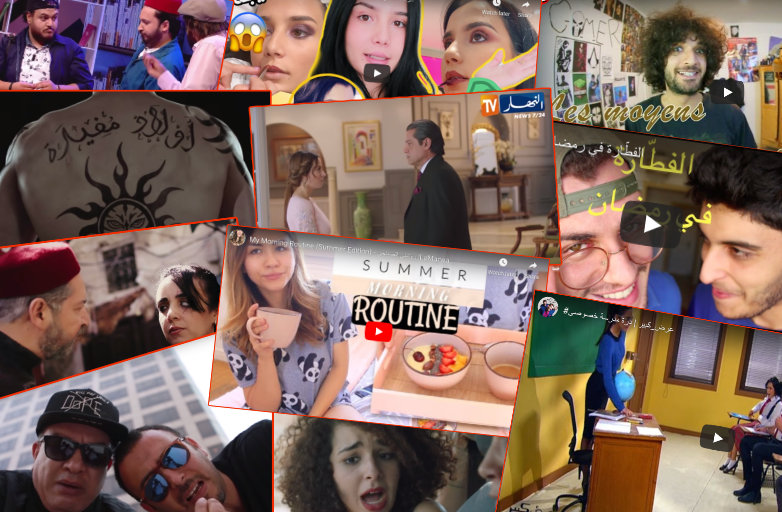
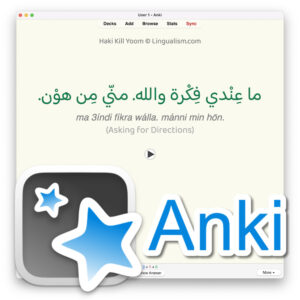
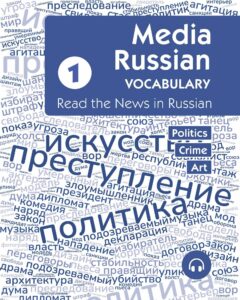
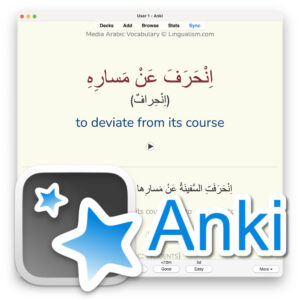
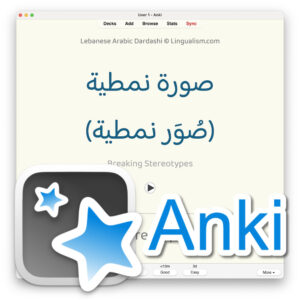
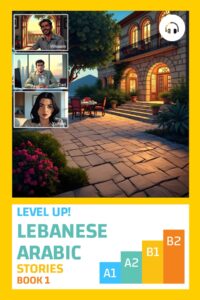
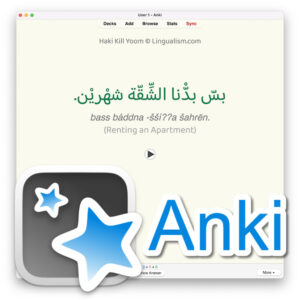
Are there any suggestions for Tunisian shows that also have the English captions available? Thanks!
I have a subscription to artify.tn which has a bunch of tunisian movies with English subtitles
By the way, all of this material is extremely helpful! I’m so happy to have found it!
I’m glad you like the material, Rachael! Unfortunately, I don’t know of any Tunisian shows/movies with subtitles offhand. I suggest you post that question in the Tunisian Forum ( https://lingualism.com/groups/tunisian-arabic/forum/ ) and hopefully you’ll eventually get some responses there. By the way, I just added Writing Prompts in Tunisian Arabic (with audio) to the Tunisian Arabic Group. Take a look! 🙂
Thanks so much! Will take your advice!
By the way, you might be interested to know that I just yesterday added some Tunisian Arabic vocabulary online: https://lingualism.com/section/tunisian-arabic-vocabulary/
Thanks for this!
I’m happy that you’ve liked the material :)) welcome Rachael 🌸
Thank you very much, this is very helpful.
Welcome, Jun! ?